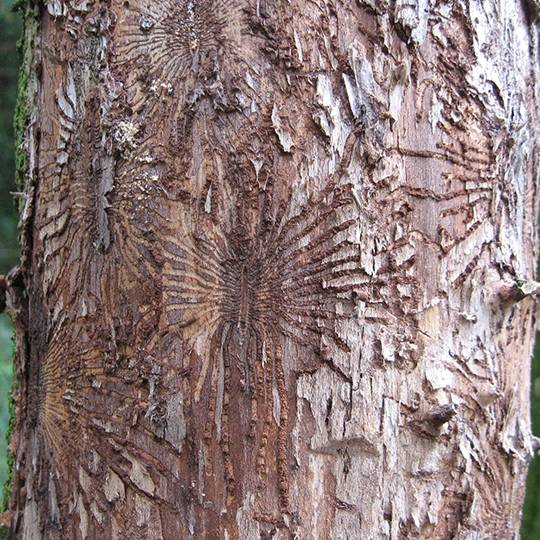
Understanding Dutch Elm Disease (DED) is crucial for homeowners, arborists, and tree enthusiasts alike. This devastating fungal infection affects elm trees, leading to their rapid decline and eventual death. At Southern Star Tree, we leverage extensive knowledge and proven strategies to identify, diagnose, and treat DED before things get out of hand. Let’s delve into the intricacies of DED, including its causes, transmission, prevention measures, and the importance of routine inspections conducted by a professional tree care company.
Dutch Elm Disease, caused by the fungus Ophiostoma novo-ulmi, is a destructive infection primarily affecting elm trees (genus Ulmus). It was first identified in the Netherlands in the early 20th century and has since spread across North America, Europe, and other parts of the world. The disease obstructs the tree’s water-conducting vessels, eventually leading to the wilting, yellowing, and death of branches and, ultimately, the entire tree.
DED spreads through interconnected root systems and the movement of elm bark beetles, which act as carriers for the fungus. These beetles breed in dead or dying elm wood and transport the disease from infected to healthy trees as they feed on the bark. In addition, pruning or cutting infected elm wood without precautions can inadvertently spread the disease. Human activities, such as the transportation of firewood, can also contribute to the dispersal of DED.
Preventing the spread of Dutch Elm Disease requires a combination of proactive measures and regular inspections:
Pruning infected branches and promptly disposing of the debris are essential to prevent further transmission. It is crucial to prune elms during the dormant season when the beetles are less active. Sterilizing pruning tools between cuts can help minimize the risk of cross-contamination.
Implementing control measures to limit the activity of elm bark beetles is vital. This includes the removal of dead or dying elms, which serve as breeding sites for the beetles. Applying insecticides to healthy elm trees during the beetle’s flight period can provide additional protection.
Planting and promoting disease-resistant elm varieties can help mitigate the impact of DED. Research and advancements in developing resistant elm cultivars have shown promising results, offering hope for the future of elm tree populations.
While preventive measures play a significant role, scheduling routine inspections with a trusted tree care company is crucial for the early detection and treatment of Dutch Elm Disease. Professional arborists possess the expertise to identify early symptoms, conduct proper diagnostic tests, and recommend suitable treatments. Regular inspections allow for the timely implementation of control measures, preventing the spread of DED to healthy trees.
Dutch Elm Disease remains a serious threat to elm tree populations worldwide. Understanding the causes, transmission methods, and prevention measures is vital in safeguarding these majestic trees. By practicing proper sanitation, beetle control, and promoting disease-resistant varieties, we can minimize the impact of DED. However, it is imperative to schedule routine inspections with professional tree service providers to ensure early detection and effective management. Southern Star Tree helps you combat Dutch Elm Disease and preserve your beloved elm trees’ beauty and ecological value. Please schedule a consultation today with our tree service providers to enjoy healthy and durable trees.